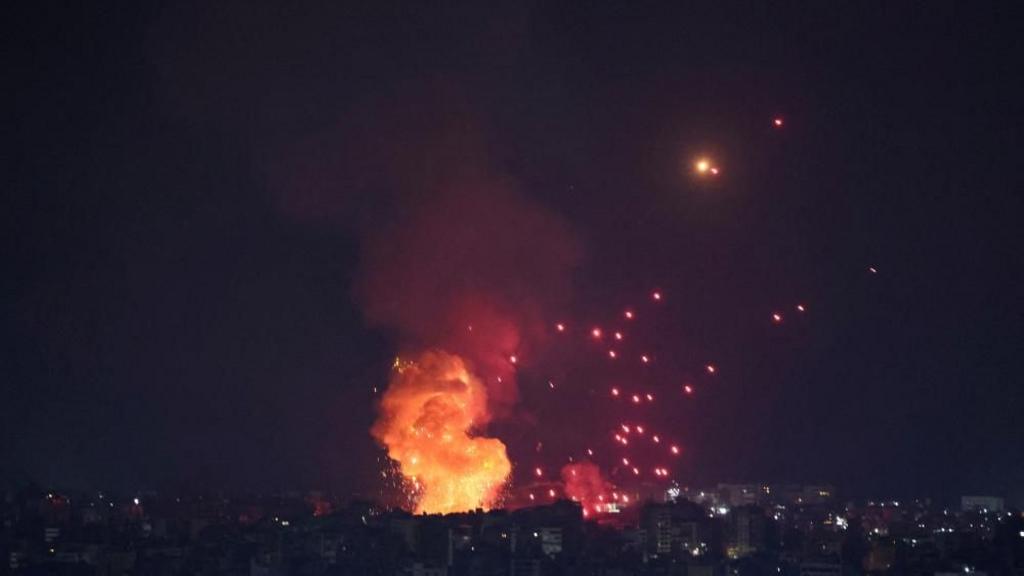
Escalating Conflict in Beirut and Lebanon: A Grave Situation
Background Context
As of October 5, the situation in Beirut and broader Lebanon has deteriorated sharply due to escalating tensions and conflict, primarily fuelled by intensified Israeli airstrikes. This escalation is rooted in a long and complex history of animosity between Israel and various Lebanese factions, particularly Hezbollah. The ongoing conflict has drawn significant international attention, with various countries becoming involved in a geopolitical standoff that threatens to have wider implications for the region.
Current Situation in Beirut
Recent reports indicate a significant increase in violence, especially in Beirut. On October 5, southern Beirut, known as a Hezbollah stronghold, experienced intense Israeli airstrikes targeting militant positions and infrastructure. These strikes led to widespread panic among residents, with the violence escalating throughout the day.
Casualties and Humanitarian Impact
Initial reports indicate a rising toll from the conflict, with local medical sources confirming dozens of fatalities and hundreds of injuries. The Lebanese Health Ministry has reported at least 75 deaths due to the strikes, with many more suffering from severe injuries. Hospitals in the area are overwhelmed, struggling to manage the influx of casualties amidst a dire shortage of medical supplies caused by the ongoing blockade and Lebanon’s fragile economic conditions.
The airstrikes have also severely impacted civilian infrastructure, worsening an already critical humanitarian situation. Many families, already grappling with the effects of a crippling economic downturn, now face the dual crises of warfare and economic instability, complicating their access to food, medical care, and basic necessities.
International Response
The international community has reacted to the escalating conflict with a mix of condemnation and calls for restraint. The United States, traditionally supportive of Israel, has affirmed its right to defend itself against Hezbollah’s rocket fire, which often translates into military assistance. Conversely, several countries, particularly in the Middle East, have expressed solidarity with Lebanon and condemned Israel’s airstrikes.
Iran has publicly backed Hezbollah, framing it as an anti-imperialist resistance movement. The Iranian government condemned the Israeli strikes, urging the international community to intervene and halt what it characterizes as aggression against Lebanon. Syria also maintains a supportive stance towards Hezbollah, complicating the conflict dynamics.
European nations have called for de-escalation from both sides, emphasizing the need for negotiations instead of violence. The United Nations has reiterated calls for an end to hostilities and an urgent response to the humanitarian crisis in Lebanon, advocating for humanitarian corridors to ensure the delivery of essential aid to those affected by the conflict.
Calls for Ceasefires and Peace
As the situation continues to deteriorate, various international organizations and local groups have called for immediate ceasefires. NGOs operating in Lebanon have emphasized the need to prioritize civilian safety and highlighted the vast humanitarian needs arising from the ongoing violence. Food insecurity, displacement, and lack of access to healthcare are pressing concerns as the situation unfolds.
Local communities are mobilizing to support those displaced by the conflict, distributing food and medical supplies. However, the necessity for a broader political solution remains critical to ensuring lasting peace and stability in the region.
The Path Forward
Currently, the situation in Beirut and Lebanon remains highly volatile. Efforts by various countries and organizations to broker peace and encourage dialogue are ongoing. However, the entrenched positions of Israel and Hezbollah, along with regional dynamics, complicate the search for a diplomatic solution.
In summary, the escalation of violence in Beirut on October 5 reflects a long-standing conflict marked by deep-seated political and territorial disputes. The situation is rapidly evolving, with potential for wider regional implications that invite international scrutiny and intervention efforts. The tragic loss of life and the humanitarian plight of civilians in Lebanon underscore the urgent need for a peaceful resolution to prevent further escalation and humanitarian crises in the region.
As the world watches, the imperative for dialogue, reconciliation, and a commitment to ending violence has never been clearer. The ramifications of this conflict extend beyond Lebanon and Israel, influencing geopolitics, security, and stability in the wider Middle East for years to come.
As of the situation described, Israel is typically supported by the United States and some Western countries. On the other hand, Lebanon, particularly through its political group Hezbollah, receives support from Iran and Syria. These alliances can vary based on the specific context of the conflict.

Average Rating